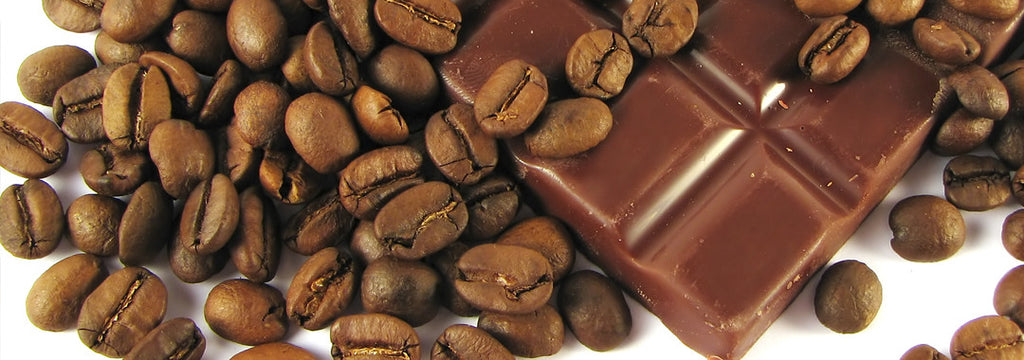
Are you not healing because your body thinks that foods such as coffee, corn, potatoes, chocolate and milk contain gluten? Do you still experience symptoms of gluten ingestion even though you are certain that no gluten is entering your body?
If so, it could be that you’re eating foods that don’t contain gluten, but your body reacts to them as if they do. This phenomenon is called gluten cross-reactivity.
Since so many people with celiac disease continue to experience symptoms after eliminating gluten, scientists have been looking into a reason why. One theory is gluten cross-reactivity.
What is Gluten Cross-Reactivity?
Gluten cross-reactivity refers to the possibility that other foods in your diet are producing the symptoms that you associate with gluten ingestion. Essentially, when your body creates antibodies against gluten, those same antibodies also recognize and potentially attack proteins in other foods. When you eat those foods, even though they are gluten-free, your body reacts as though they aren’t. Even if you do a great job of maintaining a strict gluten-free diet, you could possibly still suffer all of the symptoms of eating gluten simply because your body believes that you are.
In simple terms, this is basically a case of mistaken identity. But it’s important to note that everyone develops specific and individual antibodies to gluten, meaning that not everyone with celiac or gluten sensitivity will have symptoms of cross-reactivity. Also, very few people report cross-reacting to all of the potential foods.
What Are The Most Common Cross-Reactive Foods?
Common foods that cross react with gluten are amaranth, buckwheat, chocolate, coffee, corn, dairy, egg, hemp, potato, quinoa, rice, soy, tapioca, teff, and yeast.
Is There a Way to Test for Cross-Reactivity?
Cyrex Laboratories offers a blood test called the gluten cross-reactivity panel (Array 4), which tests for reactions to common gluten cross-reactors. Cyrex Labs reports seeing positive results around 25% of the time. It is important to keep in mind, however, that these results are correlative. This means that while they show you are sensitive to other foods besides gluten, they don’t prove that it is due to cross-reactivity. The rest results simply could mean that you have additional food intolerances.
Why is Gluten Cross-Reactivity Controversial?
While all of this seems to make a lot of sense, there currently isn’t a whole lot of scientific evidence backing it up. People have all kinds of food sensitivities and allergies, so it’s very possible that some people with celiac are also sensitive to foods like corn and egg. We also know that lots of people with celiac disease and gluten sensitivity also have lactose intolerance, so that can always be a likely culprit if dairy is causing problems.
Critics of gluten-cross reactivity theories say that we need to stop blaming all of our physical symptoms and ailments on celiac disease and on gluten – our bodies deal with all kinds of different issues and conditions and gluten, while easy to blame, is not always the culprit! Other critics also make note that only individuals with celiac would be susceptible to gluten cross-reactivity, because only they develop antibodies to gluten. While individuals with gluten sensitivity have reported symptoms of cross-reactivity as well, more research is certainly needed to explore this issue.
Other Important Points
There are other reasons why your body may be continuing to show symptoms of gluten ingestion even though you’ve eliminated gluten from your diet. Keep in mind:
1. Cross-contamination is a serious issue and can be especially prevalent in grains that don’t contain gluten but are manufactured in plants that process gluten. This holds true for things like buckwheat flour, white rice flour, soy flour, and similar items. Make sure these are certified gluten-free to confirm you aren’t getting a big bag of cross-contaminated flour.
2. The body takes time to heal! It takes time for your body to begin to feel good again after starting a gluten-free diet, especially if you have extensive intestinal damage. The wounds of celiac can take months and months to heal, so it’s important to be patient and stick to a strict diet.
3. Often times when people switch over to a gluten-free diet, they are (understandably) excited and overwhelmed by the huge variety of products out there. It is definitely easy to over do it. But filling your diet with highly processed foods, frozen meals and gluten-free breads can wreak havoc on your system, so keep this in mind if you’re still feeling bad. Instead stick to a diet rich in healthy proteins, fruits and veggies and this should certainly help with any continued digestive fatigue and pain.
Have any of you experienced gluten cross-reactivity? Did eliminating the common culprits from your diet clear up the symptoms?



Comments
Suzanne:
Yes! Major cross reactivity with dairy and eggs. Still can’t eat either one and have followed a strict gluten free, dairy free and egg free diet for 14 years – and grain free for the last several years. The switch to grain free has been the most helpful in recovering my health after nearly dying from delayed diagnosis of CD, but I know it’s not necessary for everyone.
Thanks for this informative article.
Apr 26, 2016
walter wermuth:
I am gluten sensitive, histamine intolerant, and must avoid acidic foods as well as avoid many additives in our foods. I can find info on individual items but not on all of the above in one place. is there such a place? I have IBS, leaky gut, osteopenia, anemic, have peripheral neuropathy, Urticaria, and more. my main question is do I have one basic or root problem that if taken care of, the others will fade?
Apr 26, 2016
Kevin Fuller:
I have celiacs disease. I found out about around three years ago. One product that still makes me feel glutened is coffee. I used to get hives and rash when I would eat gluten. Now I only feel like that will prolonged use of coffee. I had to switch to tea and it made all the difference.
I do believe that gluten cross reactivity is real. However, it’s rare to have celiacs disease and I am sure only a small number of celiacs feel a reaction to any other types of food. I never respond to articles I read and I hope that this helps.
Thanks
Apr 26, 2016
Jean Bittner:
I did all those elimating foods and I’m still so sick after I had a colonoscopy back in October then my doctor had to give me xifaxin and after I took that in Dec. I was even worse with severe diarrhea and I could go to work leave the house for nothing.I wouldn’t even eat for a week and I was still going like crazy.I weighed 225 pound in Aug-Sept anw today April 26,2016 I’m at 180 lbs. I eat 1 time a day unusually at night when I k I’m not going to be going anywhere but to bed. My problem has caused me lots of problems can’t go anywhere with my children like going on trip out to eat anything. I know they are angry at me Cuz I am basically confined to my home Cuz of this problem .My Gastrologist has put me on this other medicine called Viberzi but I still get get bad stomach cramps and run for the bathroom a lot plus lots of gas. I’m so miserable no one can do nothing for me .I’m asking anyone who reads this and can think of any suggestions please let me know . Its a cry for HELP PLEASE
Apr 26, 2016
Ruth Efird:
I absolutely cannot eat soy, dairy, corn, rice, nightshade veggies, canola or vegetable oils, quinoa, sugar or any gluten foods without getting fatigue, muscle pain, and bloating. I can tolerate dark chocolate and legumes in small amounts and only decaffeinated tea. I have no problems with eggs as long as they are organic. I only eat organic fruits, veggies, and meats to avoid problems with GMOs, another trigger. However I also have chronic fatigue and fibromyalgia, so avoiding these products makes my life more tolerable. I have never had trouble with IBS, or any diagnosed digestive illnesses.
Apr 26, 2016
Marianne Marston :
I found this article very interesting. I was diagnosed with coeliacs 15 years ago and after cutting out the gluten, was still experiencing symptoms that seemed to be linked to dairy. Tests confirmed I was not lactose intolerant but research I did myself informed me that dairy contains proteins called gliadins that are very similar in molecular structure to gluten, and I wondered then if my body was confusing them with gluten – particularly as my coeliac symptoms were so severe. I cut out dairy completely for about 7 years, and then reintroduced it gradually. Now I no longer experience problems with dairy produce. So I am interested to see that scientists are also considering this issue. And to let people know that you need to give your body time to heal after adopting the gf diet, a lot of damage has been done to your intestinal lining. reintroduce iffy foods gradually, and eventually you may well be able to enjoy those non- gluten containing problem foods once more.
Apr 26, 2016
Leave a comment